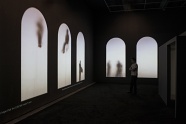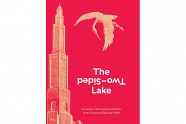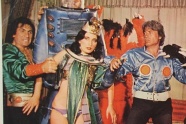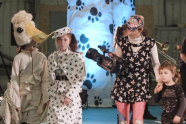| M | T | W | T | F | S | S |
|---|---|---|---|---|---|---|
| 1 | ||||||
| 2 | 3 | 4 | 5 | 6 | 7 | 8 |
| 9 | 10 | 11 | 12 | 13 | 14 | 15 |
| 16 | 17 | 18 | 19 | 20 | 21 | 22 |
| 23 | 24 | 25 | 26 | 27 | 28 | |
What’s the episodic life of data? To think of cultural institutions – from libraries to art institutions – as institutions of data usually comes down to considering how they archive and store data as heritage. The issues of permanence and storage permeate this archival focus on digital culture and data, whereas this panel wants to ask what else cultural institutions can proactively do with data – to create networks, ideas, artistic interventions and public debate about data staged by and in those institutions. This focus encourages to ask other sorts of questions than merely ones about the permanence of data: programming is one such form of 'post-history' that arranges episodic times in different rhythms than linear development; temporary nature of institutions demands an awareness how time and data can work hand in hand; what are the non-human episodes and times that are at work in cultural institutions and their (data) infrastructures.
This panel addresses new ideas and artistic practices in the context of cultural institutions, and stems from collaborations as part of the AHRC funded project Internet of Cultural Things. Presenter will discuss the particular examples and artistic methods Richard Wright took as an 'artist in residence' at the British Library, as well as offering analytical and critical perspectives that facilitate a wider discussion about cultural institutions in and of data.
Presenters include Mark Cote, Jussi Parikka, Richard Wright and Hannah Redler.

Liverpool Biennial
55 New Bird Street
Liverpool L1 0BW
- T +44 (0)151 709 7444
- info@biennial.com
Liverpool Biennial is funded by
Founding Supporter
James Moores




